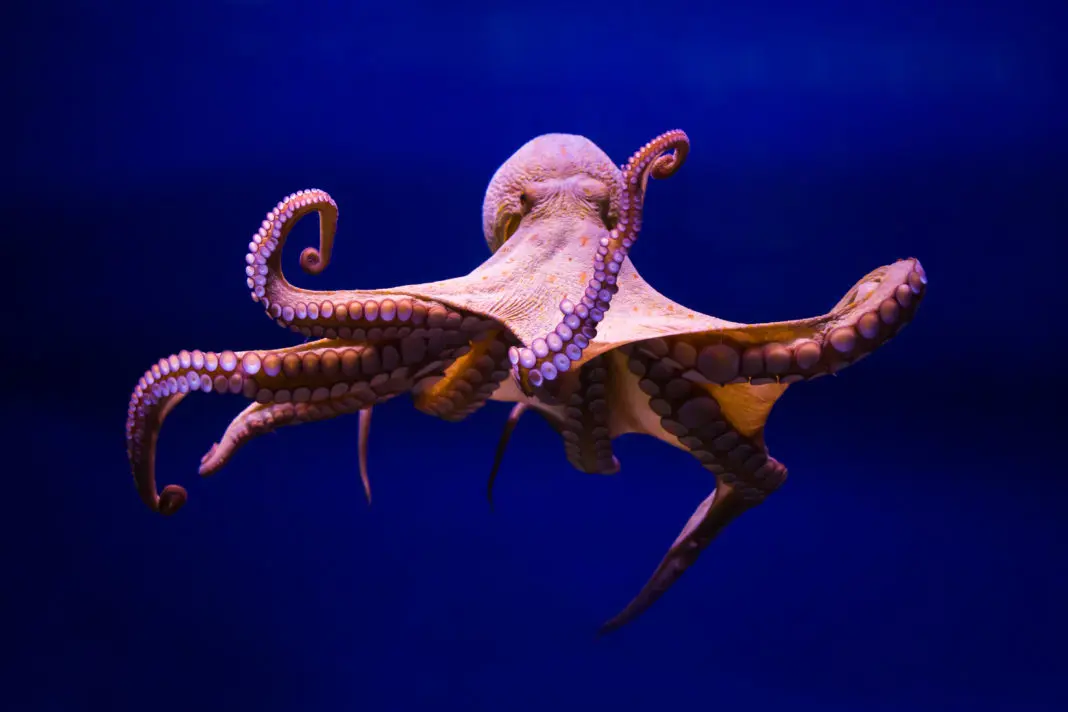A coalition of 97 animal welfare organizations and scientists is opposing the establishment of farms meant to raise octopus and other cephalopods for food.
In a joint statement released this week, the groups say:
“Government policy must focus on shifting to a global, plant-based food system in an attempt to tackle the dire climate change emergency we are currently facing worldwide. Establishing new, animal factory farms is contrary to United Nations’ 2030 Sustainable Development Goals. Banning these types of farms now, will allow countries to develop in complete alignment with the 2030 SDG commitments moving forward.”
Japan recently set up the world’s first squid farm, but local activists have opposed it.
In this week’s statement, the 97 groups say:
“‘Sustainable’ cephalopod farming does not exist. Sustainable development by definition is to satisfy the demands of current generations without threatening the needs of future generations, while taking economic growth, environmental care, and social well-being into account. Under this principle, cephalopod farming is not sustainable for several reasons.
“First, commercial aquaculture is unsustainable by nature. Aquaculture has been touted as a solution to overfishing and food security. However, farming carnivorous species, such as octopus and squid, requires an increase in the extractivism of marine species sourced from strained fisheries using inhumane fishing practices, contributing to a further decrease in already declining populations to acquire the carnivorous diet necessary for these farmed animals….
“Second, commercial aquaculture farms carry a number of biosecurity and biophysical threats to surrounding environments….
“Finally, cephalopod aquaculture farms could have detrimental effects on local aquatic animals either indirectly through unknown contaminants and pollutants transferred through discharge, or directly through farmed and wild aquatic animal interactions made possible by instances of escape.”
Check out the full statement here.

